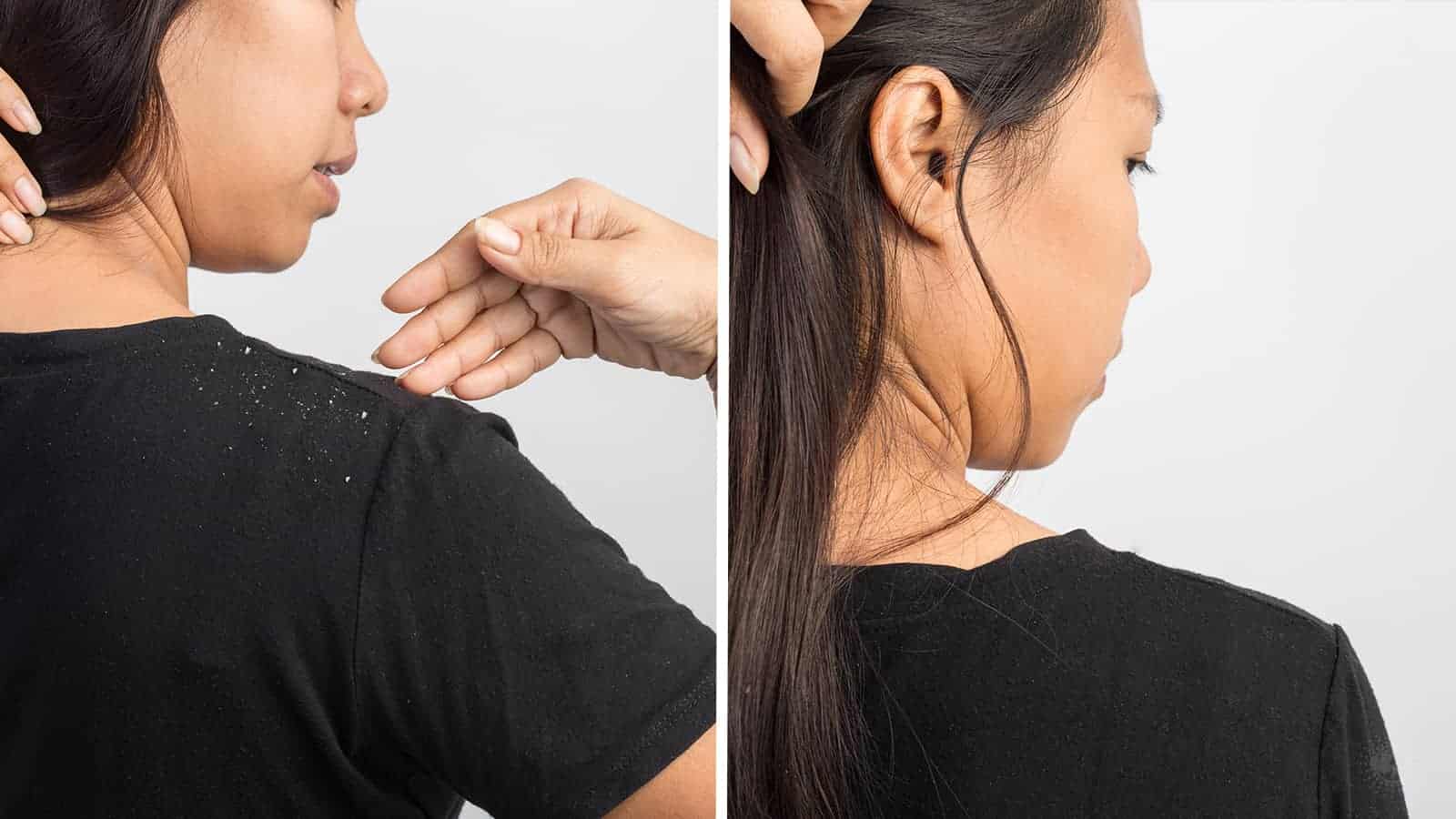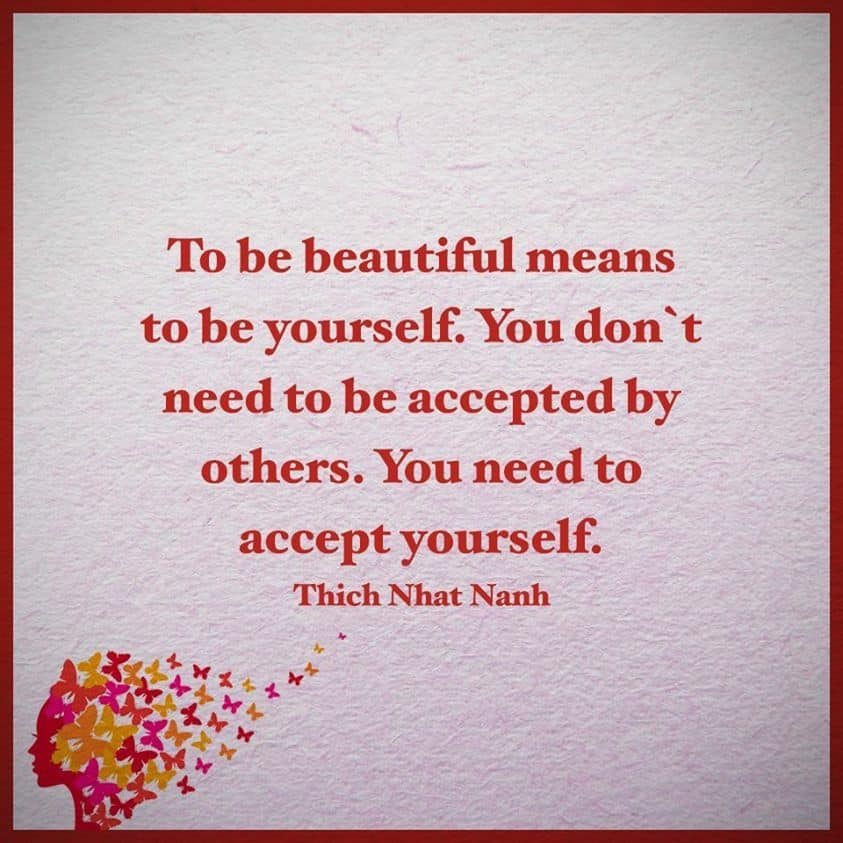Dandruff is a scalp condition that causes itchiness and white flakes on your scalp. It’s widespread, so don’t be embarrassed by it. Better yet, it’s manageable–once you know how to reduce dandruff, you’ll be on your way to regaining your self-confidence.
Indeed, the Journal of Clinical Investigative Dermatology estimates that around half the adult population in the United States have dandruff. Besides trying dandruff shampoos, you may wonder what else you could do.
Look no further. Here are 10 tips to get rid of dandruff, which most people overlook.
Six Primary Types of Dandruff
Here are the six kinds of dandruff. Knowing which you have might help you solve this problem faster.
1 – Dry skin dandruff
Dry scalp may be due to cold weather in the winter. Most often, it shows up in people who already have a dry scalp. If you have curly hair, you’re prone to a dry scalp more than other hair types.
2 – Oily scalp dandruff
If your body produces a lot of oil, you are susceptible to getting dandruff. The overproduction of oil often occurs at puberty, during times of stress, pregnancy, or not shampooing regularly.
3 – Fungal dandruff
Fungal dandruff is an infection of your scalp caused by a fungus called Malassezia globosa fungus. It spreads easily when your pH balance is off or if your scalp is extremely oily. It’s a contagious infection that can spread if you share your comb, hat, or towels with someone.
4 – Product build-up
If you overuse conditioners, gels, serums, hair sprays, or mousse, you can get a build-up on your scalp that causes dandruff.
5 – Seborrheic dermatitis
This condition is an inflammatory condition that affects your skin where you have a lot of glands like your scalp, behind your ears, eyebrows, and neck. Doctors think it’s a reaction to yeast found on your skin. Hormonal changes and stress triggers this type of dandruff. This condition closely relates to eczema.
6 – Psoriasis
Psoriasis dandruff is a skin condition caused when your immune system attacks your skin’s health tissue like that found on your scalp. This causes new skin cells to grow, and the dead skin flakes fall off. If you have this condition, you get silver looking rashes on your scalp, neck, behind your knees, and your back.
Ten Useful Tips to Reduce Dandruff
Trying to reduce dandruff can feel like a full-time job. You may have tried all kinds of shampoo and treatments. These useful at-home remedies may be the answer you searched for all the while.
1 – Tea tree oil
Studies found that tea tree oil has antifungal abilities that can get rid of yeast and fungus. If you use a shampoo with at least 5% tea tree oil, you might reduce dandruff
2 – Apple Cider Vinegar
Apple cider vinegar gets rid of certain types of flakes. It’s an antifungal that slows down the growth of conditions like candida. It also balances out your pH levels on your skin, which inhibits fungal growth that may cause some scalp conditions. Add two tablespoons of apple cider vinegar to your shampoo.
3 – Baking soda
Baking soda helps relieve dandruff as it exfoliates the white flakes from your scalp. In one study, researchers tested people scalp conditions using baking soda, and it stopped the fungal growth for 79% of the type of dandruff tested. Baking soda can also bring relief to those who have psoriasis relieving the itchiness and irritation. One word of caution about baking soda, since it’s alkaline, it may damage your hair if you treat your scalp too often.
Too many treatments will also dry out your skin, which can worsen matters. So try baking soda once, then wait to see how it works. If it seems to relieve your dandruff symptoms, use it again, but sparingly.
4 – Coconut oil
Your dandruff may be due to a dry scalp. Try applying coconut oil to your scalp once a week for eight weeks to see if it helps reduce your dandruff symptoms.
5 – Aloe vera
Although no research proves aloe vera will get rid of your dandruff, it does seem to minimize it. Topical aloe vera can help skin conditions such as psoriasis. It has antibacterial properties that could help fight dandruff. Additionally, researchers suggest that its antimicrobial abilities may help those who suffer from alopecia.
6 – Lemongrass oil
Using a 10% concentration of lemongrass essential oil in your shampoo can help treat shampoo. Researchers found that after seven days, many study participants showed improvement.
7 – Omega-3s
Eating a diet high in omega 3s helps improve your skin and scalp. Omega 3s can help by doing the following:
- Controlling the oil production of your body
- Regulate your inflammation
- Boost your hydration
- Reduce signs of aging
Foods high in omega 3s include:
- Mackerel
- Tuna
- Sardines
- Salmon
- Walnuts
- Flaxseeds
- Chia seeds
- Soybeans
- Canola oil
- Tofu
- Canola oil
8 – Zinc
Add zinc supplements to your daily regimen to boost your immune system to encourage cell growth for healthy skin. Zinc deficiencies cause hair loss, skin lesions and could contribute to dandruff and seborrheic dermatitis. Most over-the-counter dandruff shampoos contain zinc since it also stops fungal growth.
9 – Aspirin
Aspirin has salicylic acid, which is found in most anti-dandruff shampoos. Part of aspirin’s success is tied to its exfoliating ability and reduces oil. You can crush up a couple of aspirin tablets into powder and mix it into your shampoo. Put the shampoo mixture on your hair and let it sit for a few minutes, then rinse it out.
10 – Eucalyptus oil
Eucalyptus oil has anti-inflammatory abilities that can fight seborrheic dermatitis. Plus, eucalyptus has antiseptic type antifungal and antibacterial anti-fungal abilities, which help fight bacterial dermatitis. You can add some eucalyptus oil, coconut oil, or jojoba oil and rub it on your scalp.
What about your scalp?
It’s easy to focus on your dandruff without considering the importance of a healthy scalp. How can you take care of your scalp, so it’s healthier and less prone to flakiness? Here are some tips for keeping your scalp healthy.
1 – Exfoliate your scalp
Exfoliating your scalp speeds up the process of cell removal. Exfoliate a couple of times a week to remove the dead skin from your scalp. If you do it more often, it may dry out your scalp. Try using a gentle exfoliating shampoo to do the job. Always use a gentle hair brush to brush your hair and scalp daily. This stimulates and releases the oils to release moisture for your scalp and hair.
2 – Keep moisture in
Dry skin on your scalp itches and burns. Take good care of your scalp. Be careful not to use too hot water when you shower. This dries out your scalp and hair. Don’t overly blow-dry your hair since this affects your scalp and dries it out.
3 – Try a scalp massage
Many people with a dry scalp swear by a scalp massage. Getting a scalp massage stimulates the blood flow to your scalp as well as stimulating the oxygen flow. You can give yourself a scalp massage when you’re in the shower simply by using your fingers to make gentle circular movements on your head. Ask your hairdresser if you would like a professional scalp massage.
4 – Limit dyes and heated styling devices
Chemicals take a toll on your scalp. Coloring, straightening, or curling irritates your scalp and can dry it out. Always have a professional do your treatments to prevent damaging your hair and scalp. Home products contain harsh chemicals, and if they’re used in the wrong way, it could cause serious irritation to your scalp.
What else can you do to reduce dandruff?
Sometimes you’ve tried everything, but nothing works. Here are some suggestions for what you should do.
Find the cause of your dandruff.
If you’re struggling with dandruff and haven’t found a solution, you may want to keep track of your food, stress, and environmental changes. Write down everything you eat for one month. Note any triggers that pop up. Knowing what is causing your dandruff can help you know how to get some relief.
Don’t give up
Keep trying the suggested remedies, and if nothing works, you may need to see a dermatologist. They will run tests to determine exactly the cause. Your dermatologist may prescribe a cream or a lotion to help reduce the itchiness and irritation on your scalp. You may be given a salicylic acid treatment to help exfoliate the skin on your scalp.
New dandruff trend
For those who love weird trends, there’s a new dandruff trend that may catch your eye. It’s called dandruff scraping. If you have a strong stomach combined with an urge to see dandruff scatter everywhere, you’ll love this video on Youtube showing people scraping dandruff off scalps with a comb. Some have compared this trend to watching pimples being popped. Thanks for sharing. So watch this video at your own risk and try not to resist the urge to get all itchy as you watch it.
Final Thoughts on Your Battle to Reduce Dandruff
It may feel like dandruff is ruining your life. Hopefully, one of these remedies can help reduce your dandruff so you can go back to living your life without worry. Don’t forget to add zinc and omega 3s to your diet. These two are often a simple way to improve your dandruff. If nothing seems to work, try to find the root cause of your dandruff, don’t give up. It may be time to see a dermatologist who can do tests.
















 Community
Community

